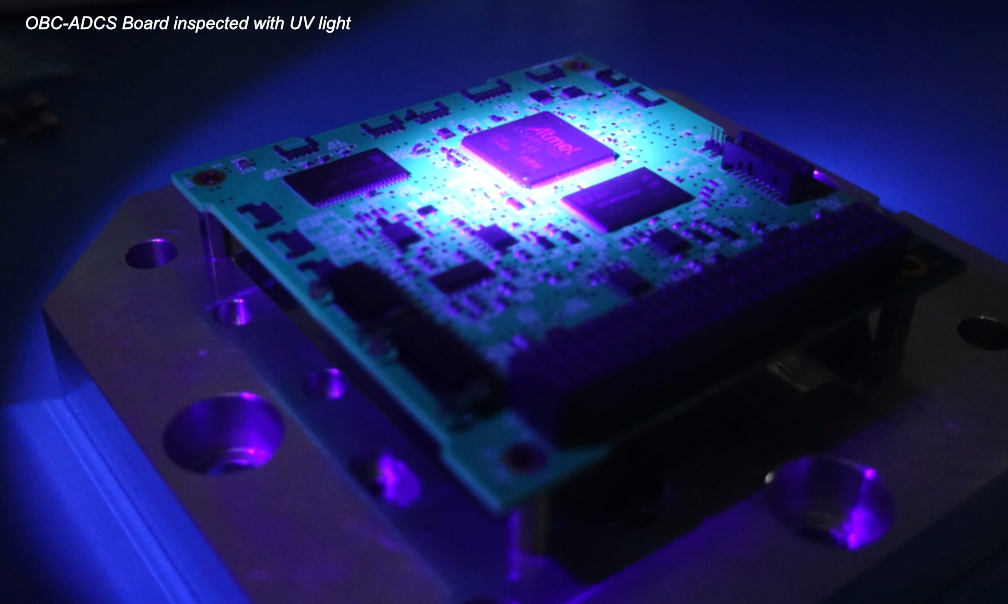
Five students from the AcubeSAT team, participating in the 3rd edition of ESA’s Fly Your Satellite! program, have travelled from their home base in Thessaloniki, Greece, to the CubeSat Support Facility (CSF), in ESA ESEC, Belgium, to conduct environmental testing on their On-Board Computer/Attitude Determination & Control System (OBC-ADCS) board.

AcubeSAT is a project by SpaceDot, with a multidisciplinary team of students primarily from the Aristotle University of Thessaloniki with members from various Greek and European universities.
AcubeSAT is a three units CubeSat that is under development to investigate eukaryotic cells’ molecular behavior under the microgravity and radiation conditions of LEO.
The smallsat will contain many components that have been designed by the students themselves, including the OBC-ADCS. This gives students a wealth of experience but comes with the additional challenges of using in-house solutions. Hence, a series of rigorous tests need to be performed to ensure the success of the AcubeSAT mission and spot possible issues before being launched in orbit.
The tested item is the OBC-ADCS board which is responsible for controlling all basic spacecraft functions and handling the communication with all the other subsystems. The ADCS subsystem hosted on this board is responsible for stabilizing the spacecraft and controlling its orientation.
The Environmental Test Campaign is composed of a Vibration Test and a Thermal Vacuum Chamber (TVAC) Test. The key concept of the campaign can be represented by CSF testing mantra: ‘Test as you fly, fly as you test!’. Therefore, the OBC-ADCS board was subject to vibration testing, as it recreates the launch conditions, before going to the TVAC testing, simulating the on-orbit environment.

The item was first unpacked, carefully visually inspected, and functionally tested. After test sensors were installed and the board was placed into the test adapter, it was subjected to different types of vibration tests to simulate the environment of the rocket and to verify that the OBC-ADCS board can withstand such loads. Testing was performed in all three axes of the spacecraft to ensure the structural integrity of the sub-system.
With no issues spotted, the vibration testing was deemed successful granting the ticket to the next phase, the Thermal Vacuum Chamber (TVAC) test campaign.
On the third day, the preparation for TVAC testing started with a cleaning process and the installation of thermocouples on both OBC and ADCS side. Due to some anomalies, and despite the best effort of the teams, only a limited test could be performed. The students were able to adjust admirably to performing lab work and responded excellently under pressure, without losing heart in the face of unexpected events, but instead being always proactive in seeking a solution.
Following the travel back to Thessaloniki, the team will investigate and correct the issues in view of a future re-qualification at the CSF in the near future.
